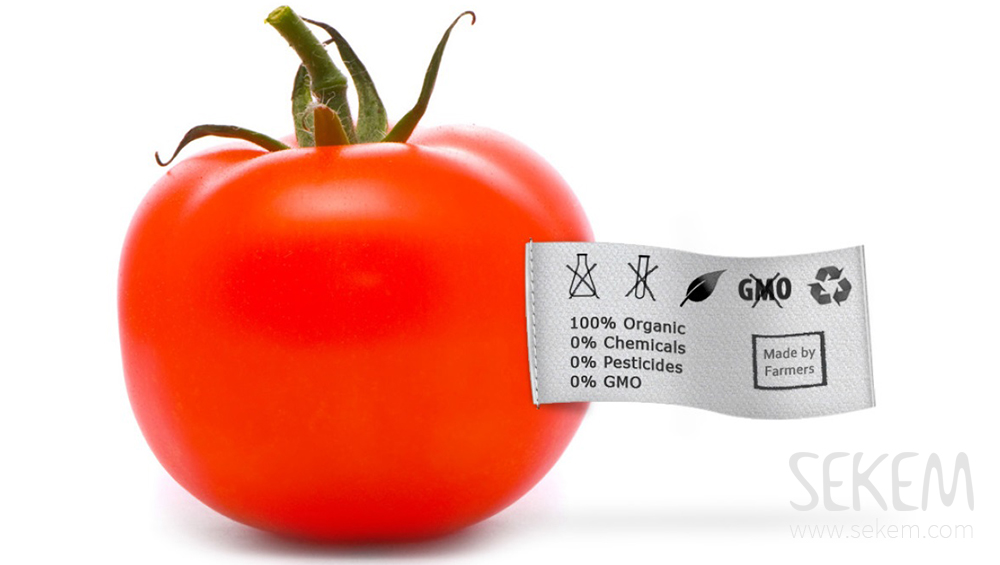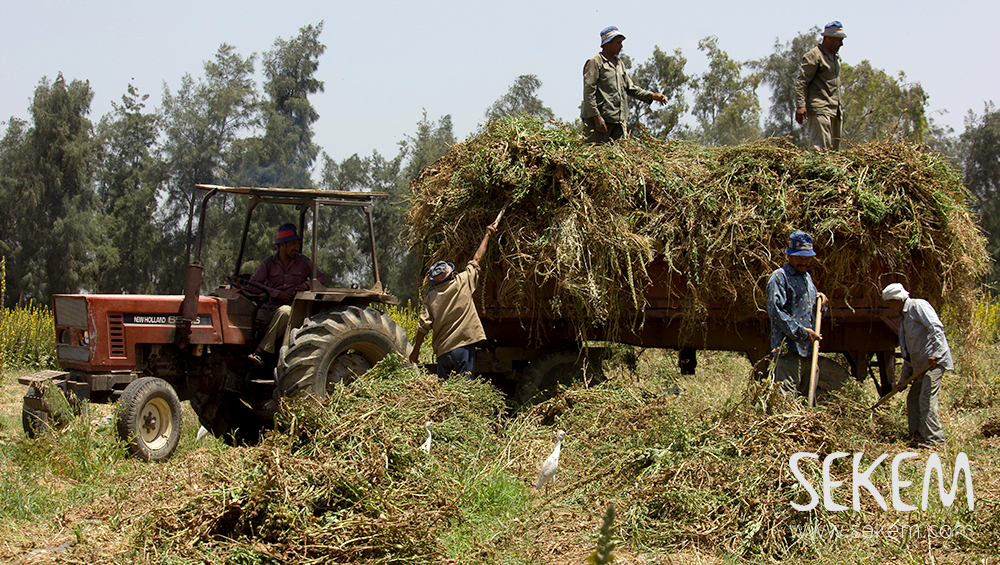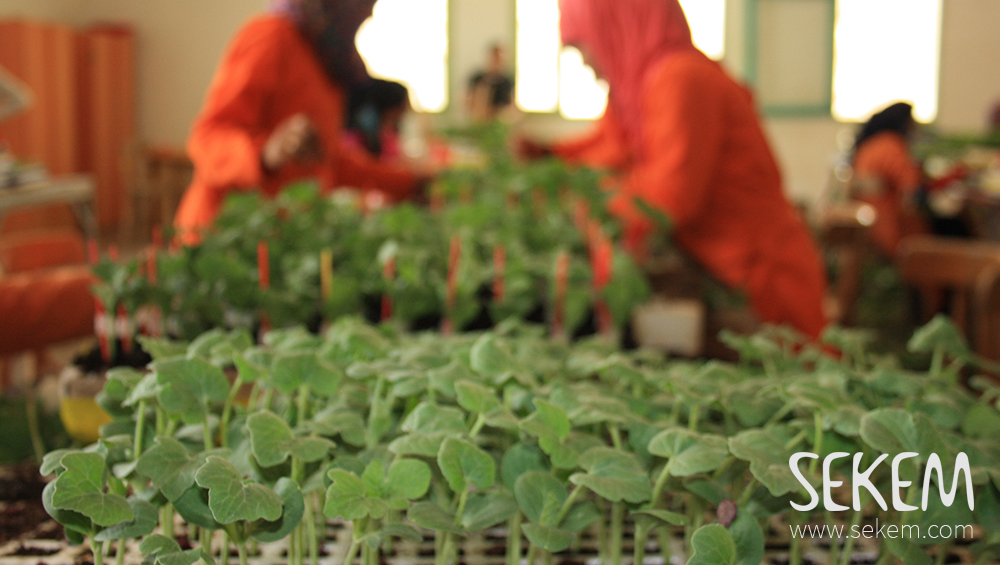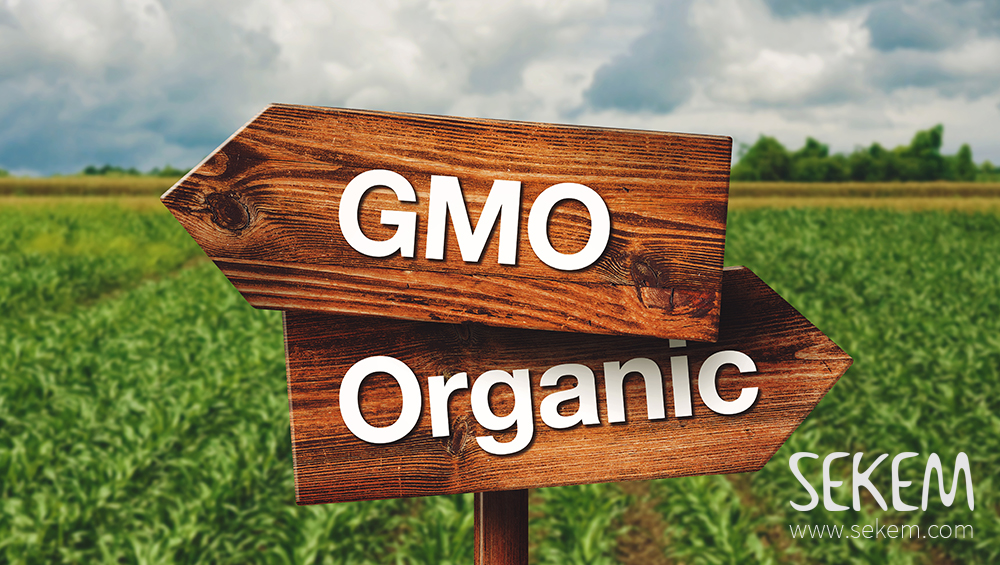Genetically modified organisms (GMO) are even 20 years after the commercial launch a controversial issue. The plants’ seeds are modified by genetic engineering in order to promote their beneficial properties, to eliminate negative features or integrate attributes from other plants. Thus, the harvest becomes more profitable and the plants become more resistant to pests. The most popular genetic modified plants are soya, corn, cotton and canola, which are grown mostly in the United States, Brazil, Argentina and India. Through an autonomous toxic production of the plant, the use of pesticides shall be reduced. However, the toxic doesn´t only keep the pests away but also kills beneficial insects. Besides, weed becomes more resistant when using GMO, which in turn leads to an increasing use of glyphosate, a weedkiller which is suspected to damage the genotype as well as being carcinogenic. Also the world hunger problem can´t be solved by the cultivation of GMO. Although the yield can be increased by GM crops, obstacles often appear in social and political sectors. A holistic approach is needed to combat the malnutrition in many parts of the world.

Environmental organizations like Greenpeace are already engaged against to the use of GM crops for a long time. According to Greenpeace, the present knowledge about GMO is only the tip of the iceberg. Nobody can estimate the long-term impacts on nature and animals at the moment. It can lead to mutations and might have strong effects on biodiversity – flora and fauna will depend on the mercy of a few large corporations that develop and distribute GM crops.
Dependency on Major Corporations
In addition, the use of GMO affects, especially in the poor countries of the world, the independence of the small scale farmers. Genetic modified seeds and pollen are carried by the wind to neighbor fields, whereby also Organic crops will be contaminated. Complying with Organic and Biodynamic standards will become very complicated – the farmers can´t sell their harvest and thereby face problems in feeding their families.

Another challenge is the patent infringement. Major corporations in the United States, Switzerland and Germany hold the patents on genetically modified seeds. By accidental contaminations the farmers can be accused of patent infringement, which will cause fines, litigation or even worse consequences. In addition, it is almost impossible to cultivate contaminated fields with conventional seeds again. This creates a dependency on western corporations – local suppliers can´t keep up with the GM crops.
One of these large corporations is Monsanto, market leader in seed production. The company has to answer to the International Court in The Hague in this year’s October this. A group of well-known public characters like Vandana Shiva, founder of Navdanya or Hans Rudolf Herren, President and CEO of the Millenium Institute, have founded the Monsanto Tribunal Foundation. They blame Monsanto to have caused the death of thousands of people and permanently damaging the environment through the use of GMO. More information on this subject is available on the website of the Monsanto Tribunal Foundation.

Organic Farming as an Alternative
In Egypt GM crops have only rarely been used. Although Monsanto has introduced 70 tons of genetically modified corn seeds in 2010, the second delivery in 2012 wasn´t approved by the Ministry of Agriculture. For the SEKEM Initiative the use of GMO is no option at all, mainly because of the long-term effects which are not visible yet. Therefore, SEKEM goes for a holistic approach, including social and cultural areas, to realize sustainable development and local value creation. Organic and Biodynamic farming principles represent an alternative to conventional or genetically modified agriculture methods and are in the long run even more cost-effective. This emerges from a recently published study, realized by the Carbon Foodprint Center in cooperation with the Heliopolis University for Sustainable Development. Biodynamic agriculture creates healthy soils, which hardly allow diseases and make the use of genetically modified plants redundant. Natural selection and seed optimization provide enough habitat in which soil, animals and humans can develop together in harmony.
Nils Daun
Read more about the International Monsanto Tribunal in The Hague
Comparative Study on the true costs of Oranic and Conventional Food Production
New biodynamic approaches and techniques for SEKEMs contracted farmers

